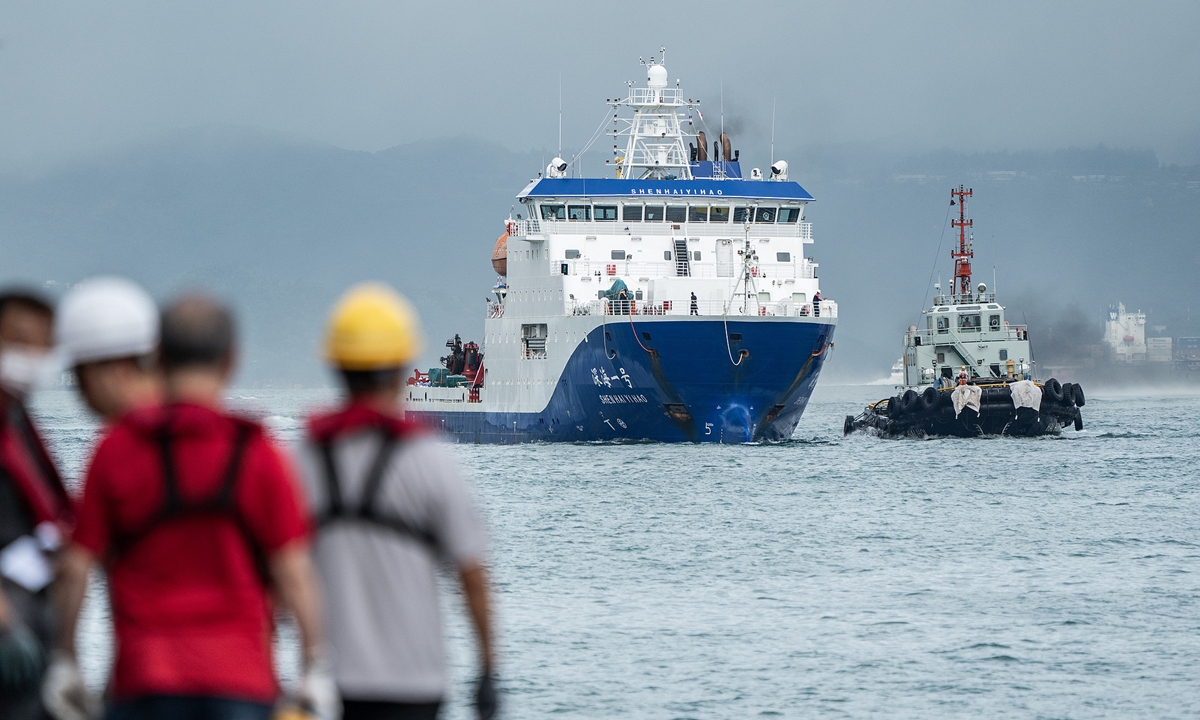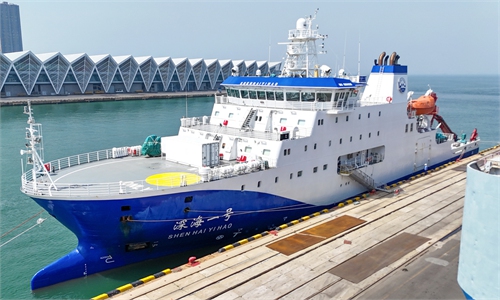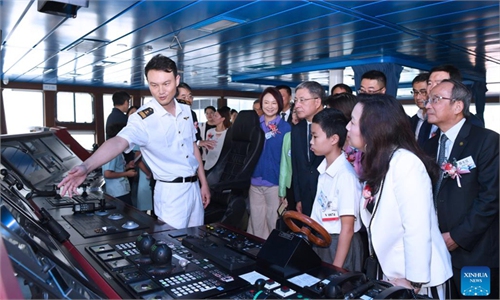
China's research vessel Deep Sea No.1, carrying the manned submersible Jiaolong, arrives at a pier in Tsim Sha Tsui, Hong Kong Special Administrative Region (HKSAR), on September 24, 2024, marking their first visit to the city. Jiaolong is China's first independently-developed deep-sea manned submersible. Photo: VCG
A series of marine science educational activities have recently taken place in Hong Kong Special Administrative Region, sparked by the first-ever visit of China's research vessel, Deep Sea No. 1, carrying the manned submersible Jiaolong, the Global Times learned on Wednesday.
According to Xinhua News Agency, the vessel is on a home-bound voyage after completing a scientific mission in the Western Pacific Ocean.
The scientific expedition team of Chinese and foreign scientists set sail on August 10 from Qingdao, East China's Shandong Province, completing a total of 18 dives in the Western Pacific. It was the first time that foreign scientists have carried out deep-sea scientific research in the craft, according to the same report.
The Global Times learnt from the Hong Kong University of Science and Technology (HKUST) on Wednesday that the expedition, co-led by HKUST, is part of the first international deep-sea metascience program, "Digital Deep-sea Typical Habitats," backed by the central government, and involved the participation of foreign scientists.
Warner Cheuk, deputy chief secretary for administration of the HKSAR government, said that the visits ahead of the 75th anniversary of the founding of the People's Republic of China fully demonstrated the central government's care and support for Hong Kong's marine scientific research development and ecological conservation.
It is hoped that this event will inspire more young people in Hong Kong to engage in deep-sea research and make planet Earth a better place to live in, he said.
Wu Changbin, director of China Ocean Mineral Resources R&D Association, congratulated the successful completion of the Western Pacific international voyage scientific expedition, saying that this voyage not only enhanced China's scientific understanding of deep-sea biodiversity and ecosystems but also contributed important scientific data to global marine scientific research.
During Jiaolong's two-day stay in Hong Kong, HKUST has hosted academic public lecture, seminar and roundtable forum to enhance public awareness of the nation's deep-sea research achievements and foster interest among young people in scientific inquiry.
Nearly 300 elementary and secondary students from more than 10 Hong Kong schools attended a public lecture at the Hong Kong Science Museum on Tuesday afternoon, the Hong Kong University of Science and Technology (HKUST) told the Global Times.
HKUST has organized a series of marine science educational activities in collaboration with the Deep Ocean Affairs Administration of the Ministry of Natural Resources, and the Bank of China (Hong Kong) beginning in August. These activities included a voyage departure ceremony on August 10, as well as a regional interactive session "Deep-Sea Classroom" conducted earlier this month.



